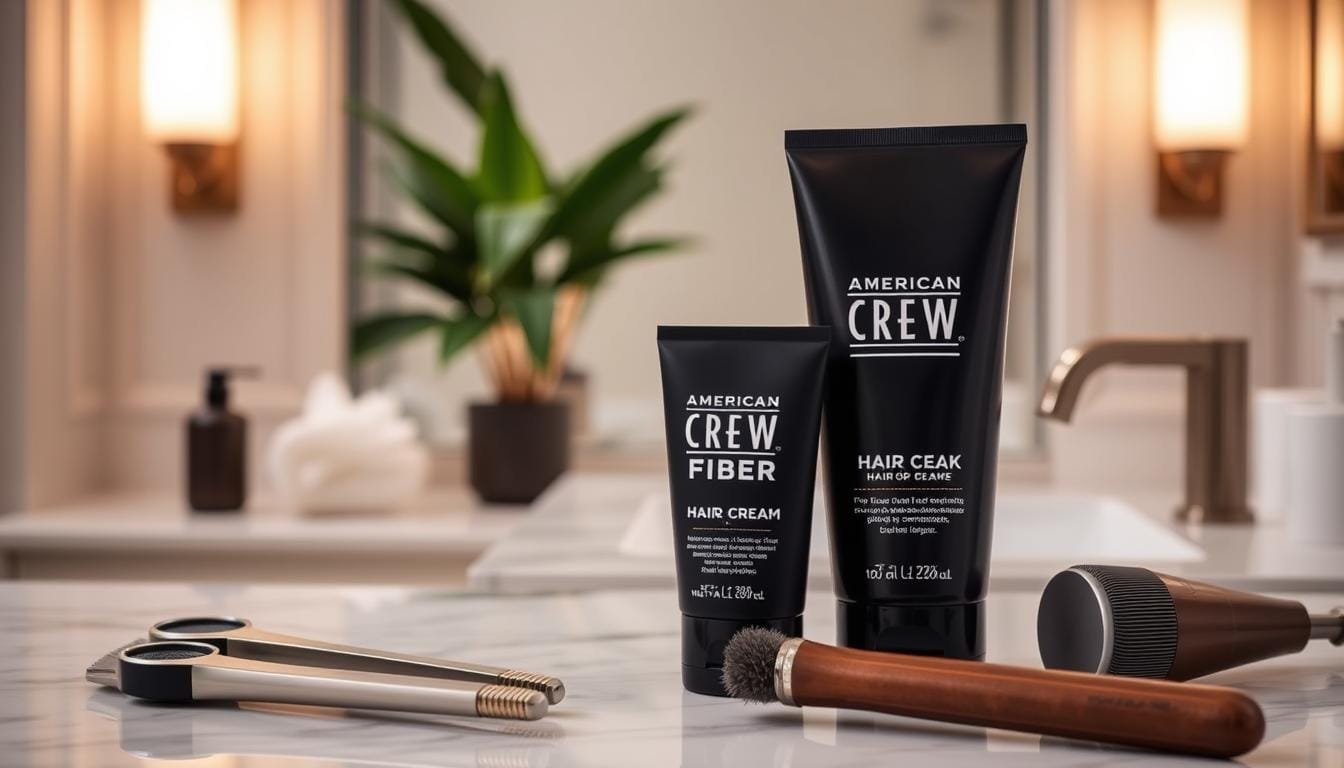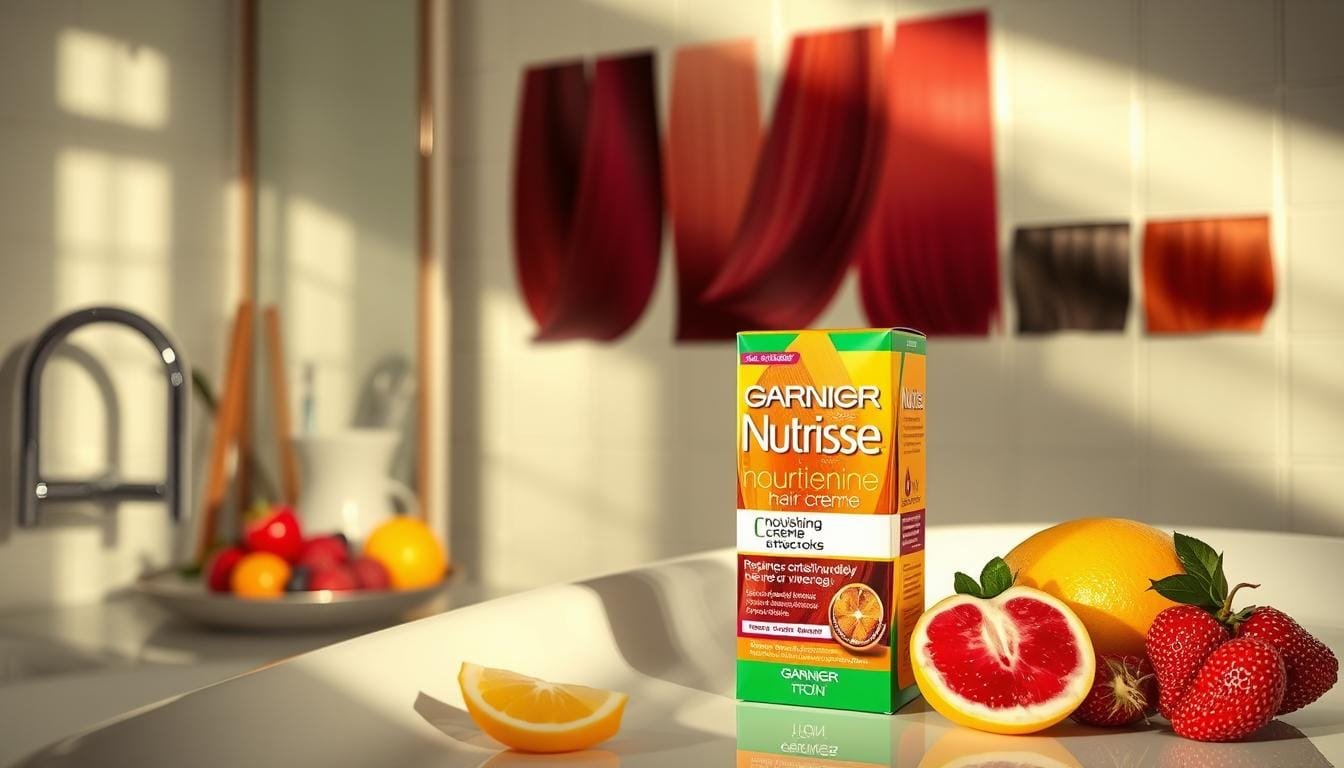Did you know 1 in 5 Americans will get skin cancer at some point? This fact shows how important it is to pick the right sunscreen. Mineral sunscreens are a great choice. They use zinc oxide and titanium dioxide to block harmful UV rays.
This guide will cover everything about mineral sunscreens. We’ll talk about their benefits, the best ones for different skin types, and what to consider when choosing. Whether you need something safe for sensitive skin or something that lasts all day, we’ve got you covered.
Key Takeaways
- Mineral sunscreens use natural ingredients like zinc oxide and titanium dioxide to provide immediate, broad-spectrum sun protection.
- These physical sunscreens are suitable for all skin types, including sensitive and acne-prone skin, and are safe for use on babies and children.
- Mineral sunscreens are reef-safe and environmentally friendly, making them a great choice for those concerned about the impact of their sun care products.
- Tinted mineral sunscreens can help create a more seamless, natural-looking application, while still providing the same level of sun protection.
- Mineral sunscreens are available in a range of formulas, from lightweight fluids to creamy moisturizers, to cater to different skin types and preferences.
What are Mineral Sunscreens?
Mineral sunscreens, also known as physical sunscreens, work in a unique way. They don’t absorb the sun’s rays like chemical sunscreens do. Instead, they act as a barrier. They deflect and scatter UV radiation away from your skin.
Chemical vs Physical Sunscreens
Chemical and physical sunscreens have different active ingredients. Chemical sunscreens use compounds like avobenzone, oxybenzone, and octinoxate. These ingredients absorb UV rays and turn them into heat. Mineral sunscreens, on the other hand, use zinc oxide and titanium dioxide. These minerals reflect and scatter the sun’s rays.
Active Ingredients in Mineral Sunscreens
- Zinc oxide: Provides broad-spectrum protection against both UVA and UVB rays.
- Titanium dioxide: Also offers broad-spectrum protection, but is generally less irritating than zinc oxide.
Mineral sunscreens are great for kids and those with sensitive skin. They’re less likely to cause irritation or allergic reactions compared to chemical sunscreens.

Choosing between chemical and mineral sunscreens depends on what you prefer, your skin type, and your needs. The most important thing is to pick a sunscreen that works well and is easy to use every day.
Do Mineral Sunscreens Work Effectively?
Absolutely! Mineral sunscreens with an SPF of 30 or higher offer broad spectrum protection. They work by creating a barrier on the skin to reflect and scatter harmful UV radiation. This is different from chemical sunscreens that absorb UV rays.
To get the best protection, apply the sunscreen as directed and reapply every two hours. This is especially true if you’re swimming or sweating. The Daily Deflector™ Mineral Face Sunscreen also protects against blue light, which can cause wrinkles and hyperpigmentation.
Mineral sunscreens with lightweight pigments, like the HydraKate Illuminating SPF 50+ Drops, can even out your skin tone. They help diffuse imperfections for a flawless look. Plus, they’re less likely to irritate sensitive skin and don’t have harsh chemicals.
| Mineral Sunscreens | Chemical Sunscreens |
|---|---|
| Provide immediate protection upon application | Take about 20 minutes to become effective against UV rays |
| Considered more environmentally friendly and reef-safe | May be harmful to marine life and coral reefs |
| Recommended for sensitive and acne-prone skin | Some formulas designed to be non-comedogenic for sensitive skin |
| Contain active ingredients like zinc oxide and titanium dioxide | Rely on chemical ingredients absorbed into the skin |
In summary, mineral sunscreens are a safer and effective choice for broad spectrum protection against UV rays. They should be a key part of your sun care routine.

Benefits of Using Mineral Sunscreens
Mineral sunscreens are great for your skin and the planet. They are gentle on sensitive skin and reef-safe, making them an eco-friendly choice.
Gentle on Sensitive Skin
Mineral sunscreens use zinc oxide and titanium dioxide. These ingredients are less likely to cause irritation or allergic reactions. They work by blocking UV rays, not absorbing them. This is perfect for people with sensitive skin, acne-prone, or melasma-prone skin.
Reef-Safe and Environmentally Friendly
Mineral sunscreens are also reef-safe and eco-friendly. The active ingredients, zinc oxide and titanium dioxide, don’t harm marine life. This makes them a smart pick for those who love the beach.
Choosing mineral sunscreens helps protect your skin and the environment. With their many benefits, they’re a safe and effective way to stay sun-safe.

Mineral Sunscreens for Different Skin Types
Not all sunscreens are the same. Mineral sunscreens offer great options for different skin types. They provide tailored benefits for oily, acne-prone, dry, and mature skin.
Best for Oily and Acne-Prone Skin
If you have oily or acne-prone skin, choose mineral sunscreens that are lightweight and non-greasy. The Neutrogena Purescreen+ Mineral UV Tint Face Liquid SPF 30 is a good choice, costing about $12 on Amazon. It helps prevent clogged pores and breakouts while protecting your skin from the sun.
Best for Dry and Mature Skin
For dry or mature skin, go for mineral sunscreens with a richer texture. The La Roche-Posay Anthelios Light Fluid Sunscreen SPF 50 is a great pick, priced at around $34. It nourishes your skin while protecting it from UV rays. The Grown Alchemist Natural Hydrating Sunscreen SPF 30, costing $42, uses natural ingredients to keep your skin moisturized.
| Skin Type | Recommended Mineral Sunscreen | Key Features | Price Range |
|---|---|---|---|
| Oily/Acne-Prone | Neutrogena Purescreen+ Mineral UV Tint Face Liquid SPF 30 | 100% zinc oxide, lightweight, non-greasy | $12 on Amazon |
| Dry/Mature | La Roche-Posay Anthelios Light Fluid Sunscreen SPF 50 | Hydrating, nourishing formula | $34 |
| Dry/Mature | Grown Alchemist Natural Hydrating Sunscreen SPF 30 | Natural, hydrating ingredients | $42 |
When picking a mineral sunscreen, think about your skin type and needs. The right formula can give you great sun protection while addressing your skin’s unique concerns.
Top Mineral Sunscreen Picks
There are many high-quality mineral sunscreens to choose from. Whether you want a lightweight, fluid formula or a tinted one, there are great options for you. These sunscreens meet your needs for sun protection.
Lightweight, Fluid Formulas
For a lightweight and easy-to-apply sunscreen, check out the La Roche-Posay Anthelios 50 Mineral Tinted Ultra Light Sunscreen Fluid. It gives you SPF 50 protection and blends well with your skin. Another good choice is the SkinCeuticals Sheer Physical UV Defense Mineral Sunscreen. It has a sheer coverage that looks natural.
Tinted Mineral Sunscreens
If you like a sunscreen with a bit of color, there are great choices. The Revision Skincare Intellishade TruPhysical offers sun protection and a natural look. The Obagi Sun Shield Mineral Broad Spectrum gives you a sheer, glowing finish.
| Brand | Product | Active Ingredients | Price per Fluid Ounce |
|---|---|---|---|
| La Roche-Posay | Anthelios 50 Mineral Tinted Ultra Light Sunscreen Fluid | Titanium dioxide 2%, Zinc oxide 17% | $12.65 |
| SkinCeuticals | Sheer Physical UV Defense Mineral Sunscreen | Zinc oxide 4%, Titanium dioxide 4% | $2.30 |
| Revision Skincare | Intellishade TruPhysical | Zinc oxide 11% | $20.59 |
| Obagi | Sun Shield Mineral Broad Spectrum | Zinc oxide 10%, Titanium dioxide 5.5% | $9.00 |
With these top picks, you can find the best mineral sunscreens for your needs. Whether you prefer lightweight or tinted options, there’s something for everyone.
Mineral Sunscreens for Face vs Body
Mineral sunscreens come in different types for the face and body. Those for the face are light and blend well under makeup. Body sunscreens are richer and cover more skin area.
Facial sunscreens cost more because they need to be non-greasy and not show a white cast. The skin on your face is thinner, so it needs extra protection. This makes facial sunscreens pricier.
Facial sunscreens come in smaller packages than body sunscreens. This matches the smaller area they cover and their one-year shelf life.
| Mineral Sunscreens for Face | Mineral Sunscreens for Body |
|---|---|
| Lightweight, cosmetically-elegant texture | Richer, more emollient formula |
| Designed for thinner, more delicate facial skin | Formulated for larger, thicker body surface areas |
| Typically more expensive due to specialized formulation | Generally more affordable |
| Packaged in smaller containers | Larger, more economical sizes |
You can use facial sunscreens on your body and body sunscreens on your face, but it’s best to stick with face-specific ones for sensitive skin. Some body sunscreens may not be good for your face because of ingredients like coconut esters or shea butter.
It’s a good idea to get a mineral sunscreen for the face for the best protection and skin compatibility.
Applying and Reapplying Mineral Sunscreens
To get the best protection, apply mineral sunscreens right and reapply as needed. Start by putting a lot of sunscreen on all skin that’s exposed. You’ll need about 1/2 teaspoon for your face and neck, 1 teaspoon for each arm, and 2 teaspoons for each leg and the torso.
Reapplying is key to keeping your skin safe. You should put on more sunscreen every two hours. Or, right after swimming, sweating, or drying off with a towel. Putting it on 15-30 minutes before going outside lets it work best.
Mineral sunscreens don’t last as long as chemical ones. Ingredients like zinc oxide wear off and need to be replaced. So, reapplying often is important to keep UV rays away.
| Sunscreen Type | Reapplication Frequency |
|---|---|
| Water-resistant mineral sunscreen | Reapply before 80-minute mark if swimming |
| Non-water-resistant mineral sunscreen | Reapply immediately after swimming |
Things like swimming, sweating, and drying off mean you might need to reapply sunscreen more often. Watch your skin and add more sunscreen as needed to stay protected.
Make reapplying sunscreen easy by having different types, like lotions, sprays, and powders. Use reminders on your phone or link it to your daily activities, like after coffee or before a walk.
Using sun hats, staying in the shade, and avoiding the sun too much can also help your sunscreen work better. This keeps your skin safe.
Mineral Sunscreens for Specific Activities
Outdoor activities call for mineral sunscreens as a top choice for protection. They’re great for hitting the waves or working out. These sunscreens keep you safe while you enjoy your favorite activities.
Best for Swimming and Water Sports
For swimming and water sports, you need mineral sunscreens that resist water. EltaMD UV Active and COOLA Mineral Body Sunscreen are great picks. They use zinc oxide and titanium dioxide to block harmful UV rays.
These sunscreens ensure your skin stays protected, even when you’re in the ocean or pool.
Best for Outdoor Sports and Exercise
Outdoor sports and exercise require a sunscreen that keeps up. Choose lightweight, sweat-resistant formulas like La Roche-Posay Anthelios 50 Mineral Tinted Ultra Light Sunscreen Fluid. These sunscreens protect without feeling heavy or greasy.
So, you can focus on your workout or game without skin worries.
Mineral sunscreens are a smart pick for any outdoor activity. They protect your skin from the sun’s harmful rays. Whether you’re swimming, surfing, hiking, or running, these formulas have you covered.
Potential Drawbacks of Mineral Sunscreens
Mineral sunscreens are great for sensitive skin and safe for reefs. They used to leave a white cast and felt heavy, thick. But, today’s formulas are lighter and less noticeable.
Some mineral sunscreens can be hard to blend in. You need to prepare your skin and apply them right. They also don’t always have the highest SPF, but SPF 30 still protects you from 97% of UV rays.
The rating process for sunscreens can be tricky. Groups like Consumer Reports don’t always share enough details. This makes choosing the right mineral sunscreen hard for consumers.
Despite these issues, many love mineral sunscreens for their safety and effectiveness. Knowing the challenges helps you pick the best one for you.
Tips for Choosing the Right Mineral Sunscreen
Choosing the right mineral sunscreen is key for your skin’s health. Think about your skin type, the feel you want, and how you plan to use it. If your skin is sensitive, pick a mineral sunscreen without fragrances and won’t clog pores.
For those who love the outdoors, a water-resistant sunscreen is best. It stays on even when you sweat. If you wear makeup, a tinted mineral sunscreen blends in well, giving you sun protection and a smooth look.
The best mineral sunscreen is one you’ll use every day and like using. Check out reviews and ask dermatologists for advice to find the right one for you.
Key Considerations for Choosing a Mineral Sunscreen:
- Skin Type: Look for non-comedogenic and fragrance-free formulas for sensitive skin.
- Activity Level: Choose water-resistant and sweat-proof options for active lifestyles.
- Desired Finish: Tinted mineral sunscreens offer a seamless makeup application.
- Product Reviews: Consult dermatologist recommendations and customer feedback.
Keep these tips in mind to find a mineral sunscreen that protects your skin well. It should also make you feel good about your skin.
Conclusion
Throughout this guide, you’ve learned about the benefits of mineral sunscreens. They are safe, effective, and good for the environment. By choosing the right kind for your skin and applying it correctly, you can enjoy the outdoors safely.
There are many types of mineral sunscreens available. You can find lightweight formulas or tinted ones for everyday use. These sunscreens are great for sensitive skin and help protect the environment too.
Remember to use a lot of sunscreen, reapply every two hours, and use other sun-safe methods like staying in the shade and wearing protective clothes. Adding mineral sunscreens to your daily routine helps protect your skin for a long time. This way, you can enjoy the outdoors safely.
FAQ
What are the main differences between chemical and mineral sunscreens?
Chemical sunscreens absorb UV rays with certain ingredients. Mineral sunscreens, or physical sunscreens, use zinc oxide and titanium dioxide. They create a barrier that reflects UV rays.
Do mineral sunscreens provide effective broad-spectrum protection?
Yes, mineral sunscreens with SPF 30 or higher offer broad-spectrum protection. They work by creating a physical barrier on the skin. This barrier reflects and scatters UV rays.
What are the benefits of using mineral sunscreens?
Mineral sunscreens are gentler on sensitive skin and less likely to cause irritation. They are also reef-safe and eco-friendly. They don’t contain harmful chemicals like oxybenzone and octinoxate.
Are there different mineral sunscreen formulations for different skin types?
Yes, there are mineral sunscreens for various skin types. Oily or acne-prone skin may do well with lightweight, non-greasy formulas. Dry or mature skin may prefer richer, more hydrating textures.
What are some top picks for mineral sunscreens?
Popular mineral sunscreen options include La Roche-Posay Anthelios 50 Mineral Tinted Ultra Light Sunscreen Fluid. Other choices are SkinCeuticals Sheer Physical UV Defense Mineral Sunscreen, Revision Skincare Intellishade TruPhysical, and Obagi Sun Shield Mineral Broad Spectrum.
How should I apply and reapply mineral sunscreens?
Apply mineral sunscreens generously to all exposed skin. Reapply every two hours or after swimming, sweating, or drying off. Put it on 15-30 minutes before going outside to let it bind to your skin.
Are there any potential drawbacks to using mineral sunscreens?
Earlier, mineral sunscreens could leave a white cast and felt heavy. But, many modern formulas now offer elegant, lightweight options. These have less white cast.
How do I choose the right mineral sunscreen for my needs?
Think about your skin type, texture preference, and how you plan to use it. Choose fragrance-free and non-comedogenic options if your skin is sensitive. For active use, look for water-resistant and sweat-proof formulas.



